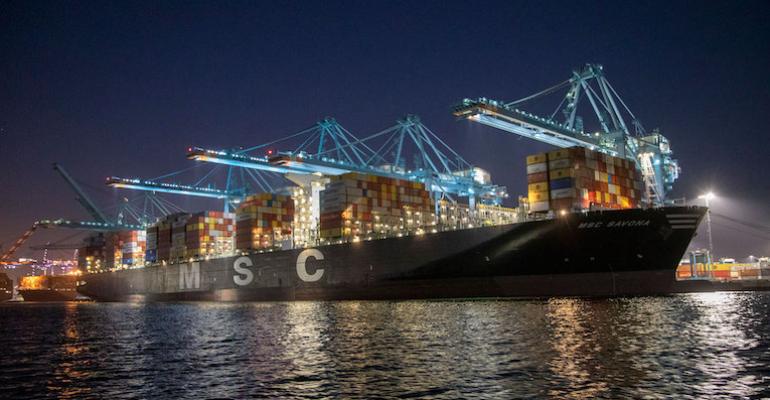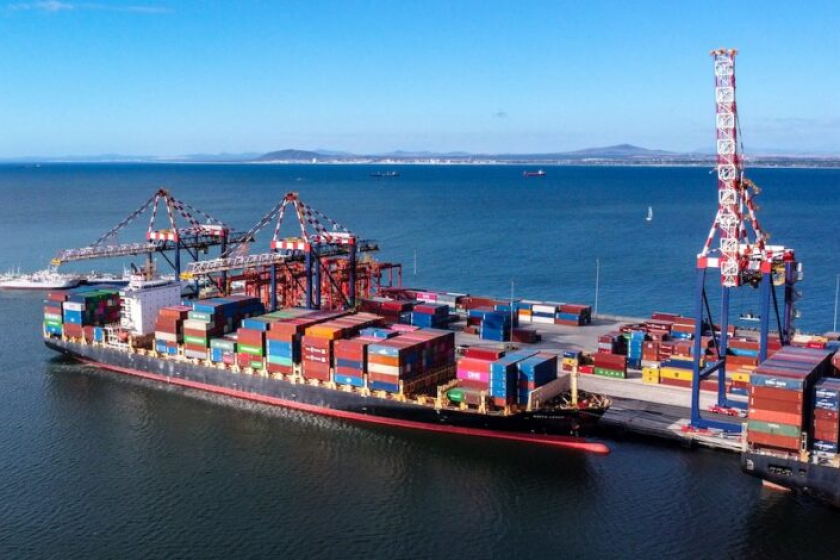Photo: Port of LA
A million teu of container line capacity may lay idle in 2023 as demand drops, freight rates fall, and economic confidence worsens.
Gary Howard | Nov 24, 2022 Seatrade Maritime News
Freight intelligence platform Xeneta said in its 2023 outlook that ocean cargo volumes could fall by up to 2.5% in 2023 in an extremely challenging market environment.
Xeneta CEO Patrik Berglund, said: “The cost-of-living crisis is eating into consumer spending power, leaving little appetite for imported, containerized goods. With no sign of a global panacea to remedy that, we’d expect ocean freight volumes to drop, possibly by around 2.5%. That said, if the economic situation deteriorates further, it could be even more.”
Exacerbating the economic troubles facing the market, the global container fleet is set to grow next year, with 1.65m teu of added capacity set to join the fleet.
“Some demolitions will dent that growth, but we still expect an increase in capacity of 5.9%. Even if demolitions double from our current level of expectations, the industry would still be looking at an almost 5% expansion,” said Berglund.
Falling demand and growing capacity is a classic recipe for overcapacity, a factor Xeneta expects will lead to idling of up to 1m teu worth of capacity, “maybe even more,” said Berglund. Current fleet idling is next to zero after companies hunted for ships to bring into service during the recent pandemic-induced high freight market.
“Carriers have proved adept at protecting and elevating rates during COVID, but with too much capacity, and easing port congestion, on most major trade lanes they’ll be fighting losing battles in 2023,” said Berglund.
Spot market rates have already fallen and could hit pre-pandemic levels on some lanes in 2023, said Xeneta, and long-term rates will fall sharply as contracts fixed at the height of the market expire and their replacements reflect the new market reality.
“As far as upcoming contract negotiations go, it’s imperative to keep an eye on the very latest market data to obtain optimal value. However, those talks will be difficult for all parties. The carriers will be desperate for volumes, but, at the same time, the shippers won’t have the high volumes that unlock the best prices. What we might see is that Freight Forwarders are the big winners, as they can find a sweet spot, serving the SMEs while playing the short market against carriers. Regardless, there’s both opportunity and challenges ahead, in the short- and long-term,” said Berglund.
Copyright © 2022. All rights reserved. Seatrade, a trading name of Informa Markets (UK) Limited.

